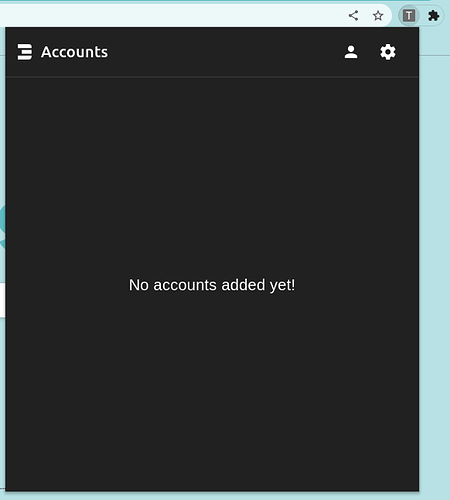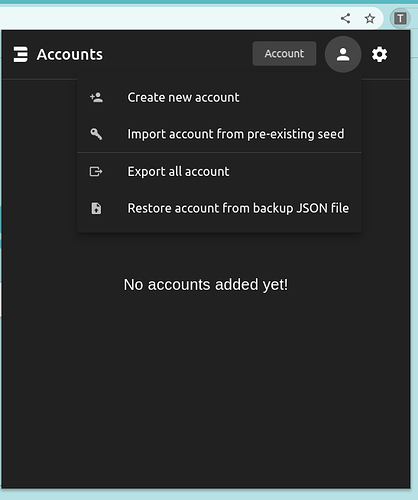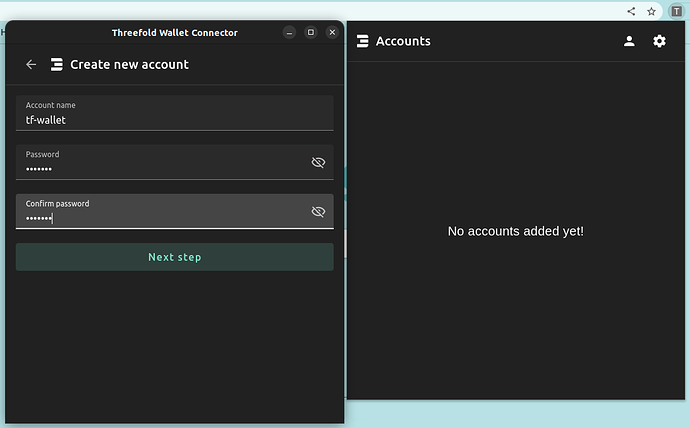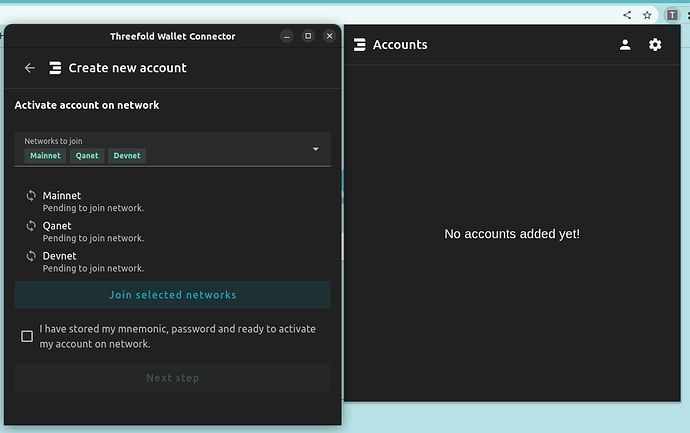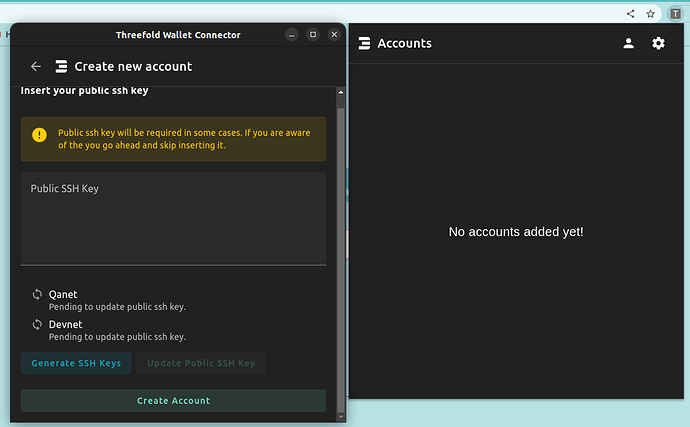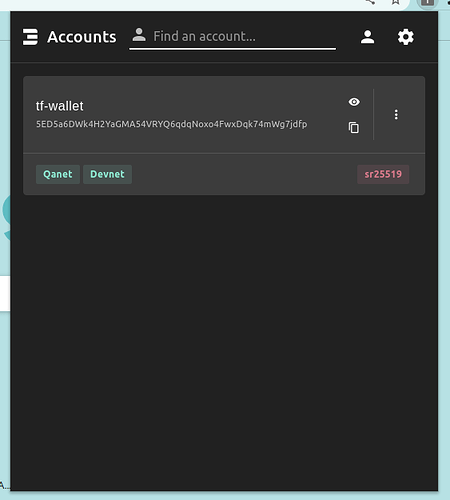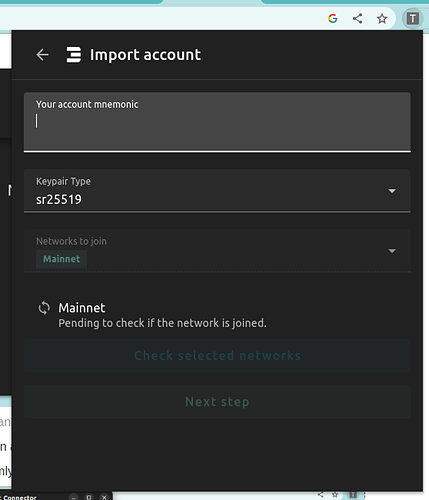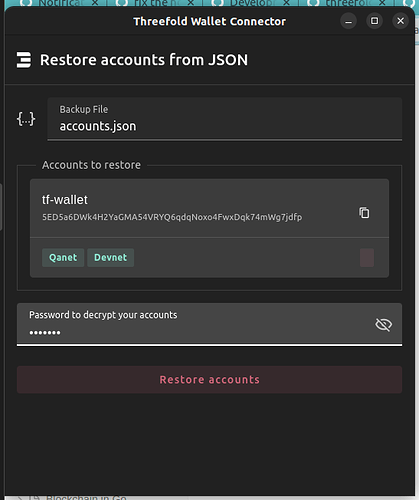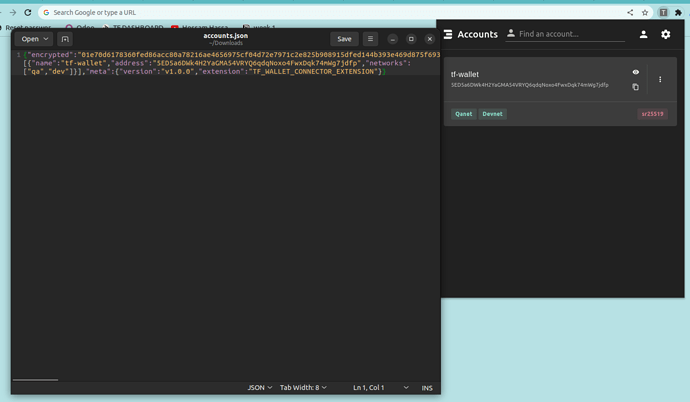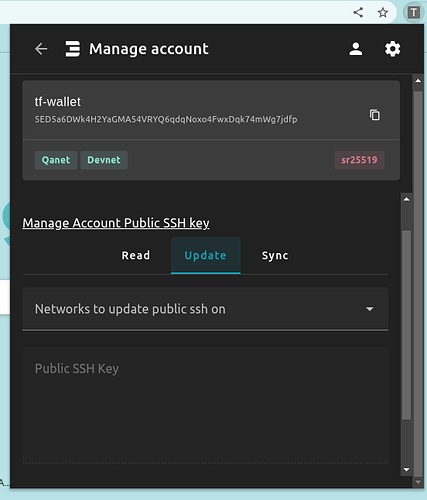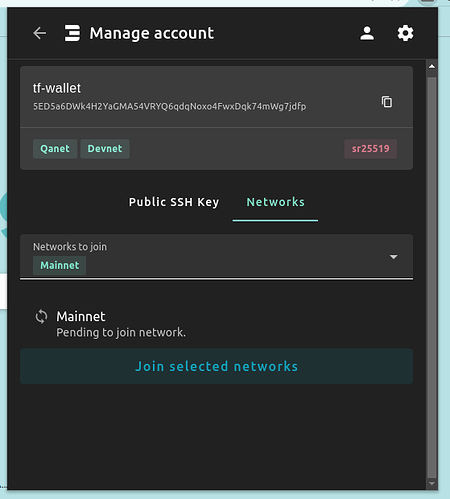tf wallet connector (Github repo link) is a browser extension which allows users to store their accounts (aka. mnemonic) in an encrypted way, providing an interface for websites to interact with after getting access permission from the user himself.
The tf-wallet-connector will eventually replace the polkadot extension and the profile manager everywhere within the TF ecosystem.
Why
First, the polkadot extension doesn’t work well for the deployment process. The fact that you need to sign so many times means you will keep getting popups to sign. It might work well for things like updating farm configurations, which is most likely just one signing request, but in case of deployments it won’t work ergonomically for the users.
But we have the Profile Manager?
It’s true, we already did so many iterations on the Profile Manager in the Dashboard and the Playground. We are merging both in 3.13 in a complete rewrite that’s actually very close to being finished, and we are using the Profile Manager in there. But the plan is to replace it completely with the browser extension and expose APIs for other people wanting to follow the same philosophy to use a browser extension instead of the current implementation (site-based, while it’s secure and encrypted, it doesn’t give the same feeling of a browser extension safety in a way).
The tf-wallet-connector also makes it possible to set different accounts within the extension. This will ease the log in process of features such as TF Dashboard.
The extension supports all the following networks (Mainnet, Testnet, Qanet, Devnet).
Features
-
Adding accounts to the extension:
-
Users can create accounts on all supported networks
-
Mnemonic will be randomly generated and linked to the account.
-
The user then have to provide a name and a password for the account.
-
The networks on which the account will be activated on should be chosen.
-
The final step is to create the public ssh key and then create the account.
once the account is created it’ll be added to the extension.
-
-
Import account from pre-existing seed.
-
Restore account from a backup JSON file.
-
-
Export all accounts into a JSON file.
-
User can rename accounts.
-
User can manage accounts.
-
Public SSH Key
User can read, update and sync the accounts public SSH key.
-
Networks
User can join other Networks.
-

